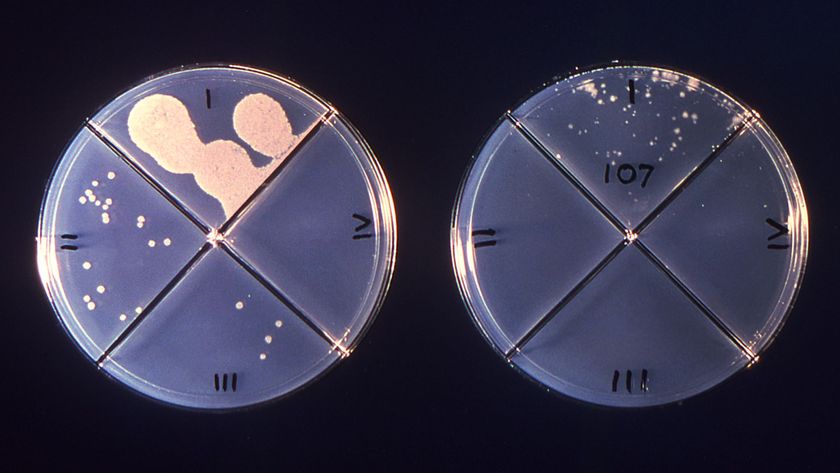Reports of Gay Staph Disease Overblown
Gay men are being singled out once again for spreading evil, and this time it has nothing to do with the rampant file-sharing of Liza Minelli MP3s.
A grossly misinterpreted study about drug-resistant staph infections in a gay community in San Francisco, conducted by the University of California, San Francisco, has led some newspapers and numerous anti-gay groups on the Internet to proclaim that an AIDS-like epidemic is upon us, spread through sinful behavior.
The study, to be published next month in the Annals of Internal Medicine, found that gay men in San Francisco's Castro district were 13 times more likely to be infected with a relatively new and highly antibiotic-resistant strain of the MRSA staph bacteria compared to the general population.
While that might sound ominous, the infection has less to do with being gay and more to do with living in a closed community, which like a school or ship serves as an incubator to spread the disease first within the group and then to the rest of us.
No gay bacteria
MRSA, short for Methicillin-resistant Staphylococcus aureus, has been around since at least 1960, long before folks proclaimed that the sitcom "Will & Grace" has set the United States on its journey to hell in a hand basket.
MRSA prevalence is on the rise, though. MRSA causes more than 94,000 serious infections and nearly 19,000 deaths each year, according to the Centers for Disease Control and Prevention, making it more deadly than that other disease that isn't exclusively gay, AIDS.
Sign up for the Live Science daily newsletter now
Get the world’s most fascinating discoveries delivered straight to your inbox.
Colonies of the bacterium can cause nasty skin boils and even eat away at the skin. Like most bacteria, MRSA is spread through touch, either from someone infected or from something as unassuming as a countertop. MRSA is common in hospitals, where it can survive on curtains and garments even after washing.
This recent strain now seen in the Castro district, called USA300 MRSA, emerged around 2002, is in 38 states, and has not shown a preference for any sexual orientation, the CDC states. A second paper by scientists at National Institutes of Health, appearing online this week in the Proceedings of the National Academy of Sciences, documents the evolution of USA300 MRSA and reinforces the fact that the transmission route for this bacterium and the AIDS virus, HIV, are very different.
In short, there is no such thing as "gay staph."
Misinterpreted study
The UCSF research team was mortified to learn that its findings, announced in a university press release on Jan. 14, were misinterpreted to mean that USA300 MRSA was a "gay disease" and that homosexuals were spreading it to the heterosexual population in a manner analogous to how they were wrongly blamed for spreading HIV.
The research article states that the MRSA strain can be transmitted sexually because, well, there's usually touching involved. For this community, sexual activity is the probable transition route. For the Amish, MRSA could be transmitted through the sharing of contaminated hammers.
Henry Chambers, a medical doctor at San Francisco General Hospital Medical Center who led the study, has since been on the defensive, emphasizing what the research article actually says: that MSRA is on the rise; that it has spread through most of the United States in heterosexual communities; that his team has identified one group with a high rate of infection likely spread though sexual contact; and that the disease can spread quickly through any community if proper hygiene is lax.
Misinformation spread like bacteria
A group called Concerned Women for America, apparently not entirely concerned that its press release from Jan. 15 was based on news reports of the study and not the study itself, were among the many anti-gay groups with patriotic-sounding names (Americans For Truth about Homosexuality is another) that labeled USA300 MSRA a gay disease inseparable from a gay lifestyle of deviant sexual behavior.
Sadly, these groups are helping spread MSRA by labeling it as something primarily caused by or affecting homosexual men.
We cannot abstain from touching everyone and everything to avoid a staph infection. What's needed is awareness—hand-washing, for example, can reduce transmission—and not hysteria.
- Top 10 Mysterious Diseases
- Take the Body Quiz
- The Truth About Deadly 'Superbugs'
Christopher Wanjek is the author of the books “Bad Medicine” and “Food At Work.” Got a question about Bad Medicine? Email Wanjek. If it’s really bad, he just might answer it in a future column. Bad Medicine appears each Tuesday on LiveScience.

Christopher Wanjek is a Live Science contributor and a health and science writer. He is the author of three science books: Spacefarers (2020), Food at Work (2005) and Bad Medicine (2003). His "Food at Work" book and project, concerning workers' health, safety and productivity, was commissioned by the U.N.'s International Labor Organization. For Live Science, Christopher covers public health, nutrition and biology, and he has written extensively for The Washington Post and Sky & Telescope among others, as well as for the NASA Goddard Space Flight Center, where he was a senior writer. Christopher holds a Master of Health degree from Harvard School of Public Health and a degree in journalism from Temple University.











